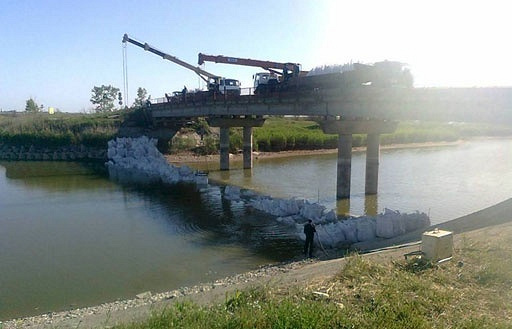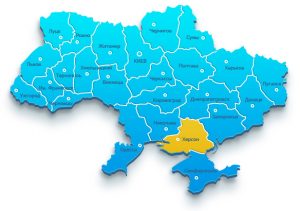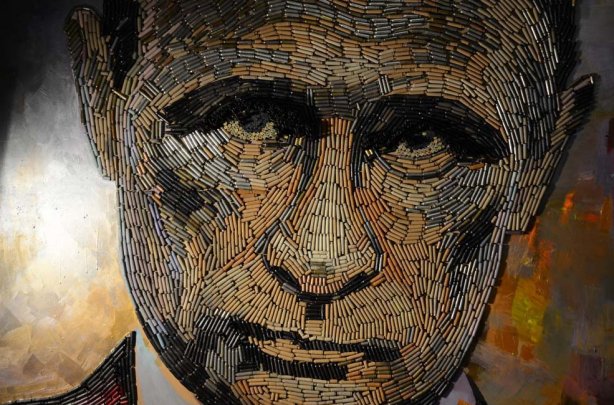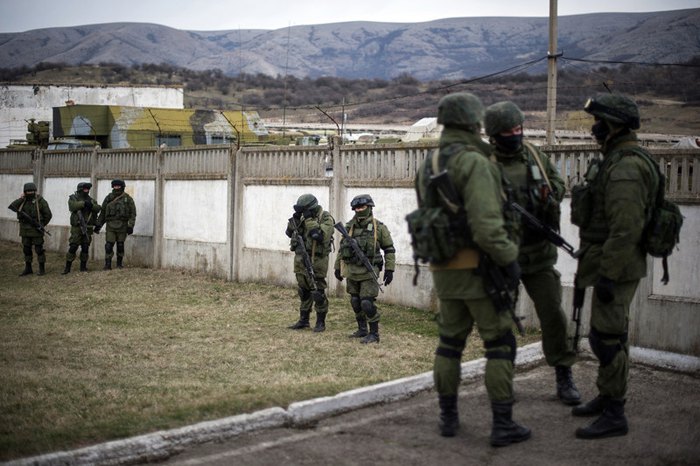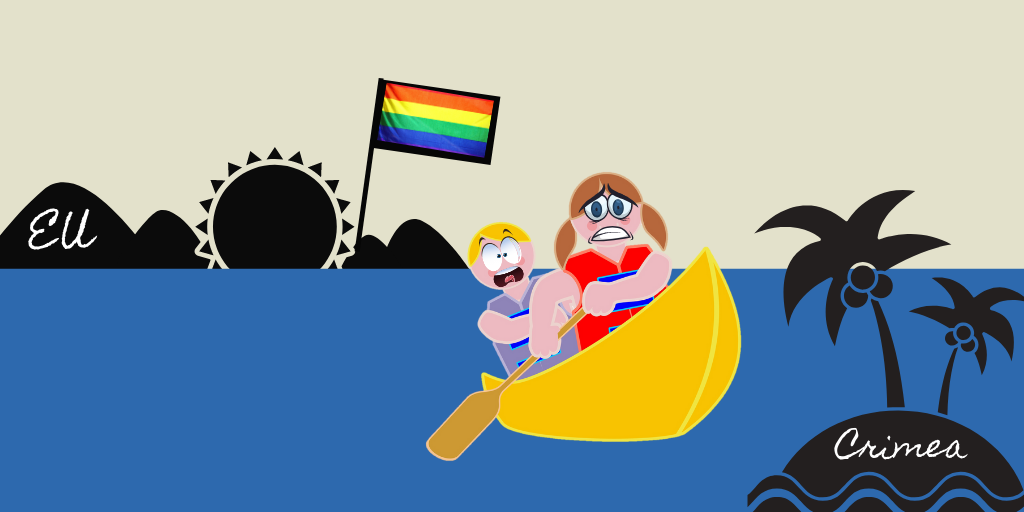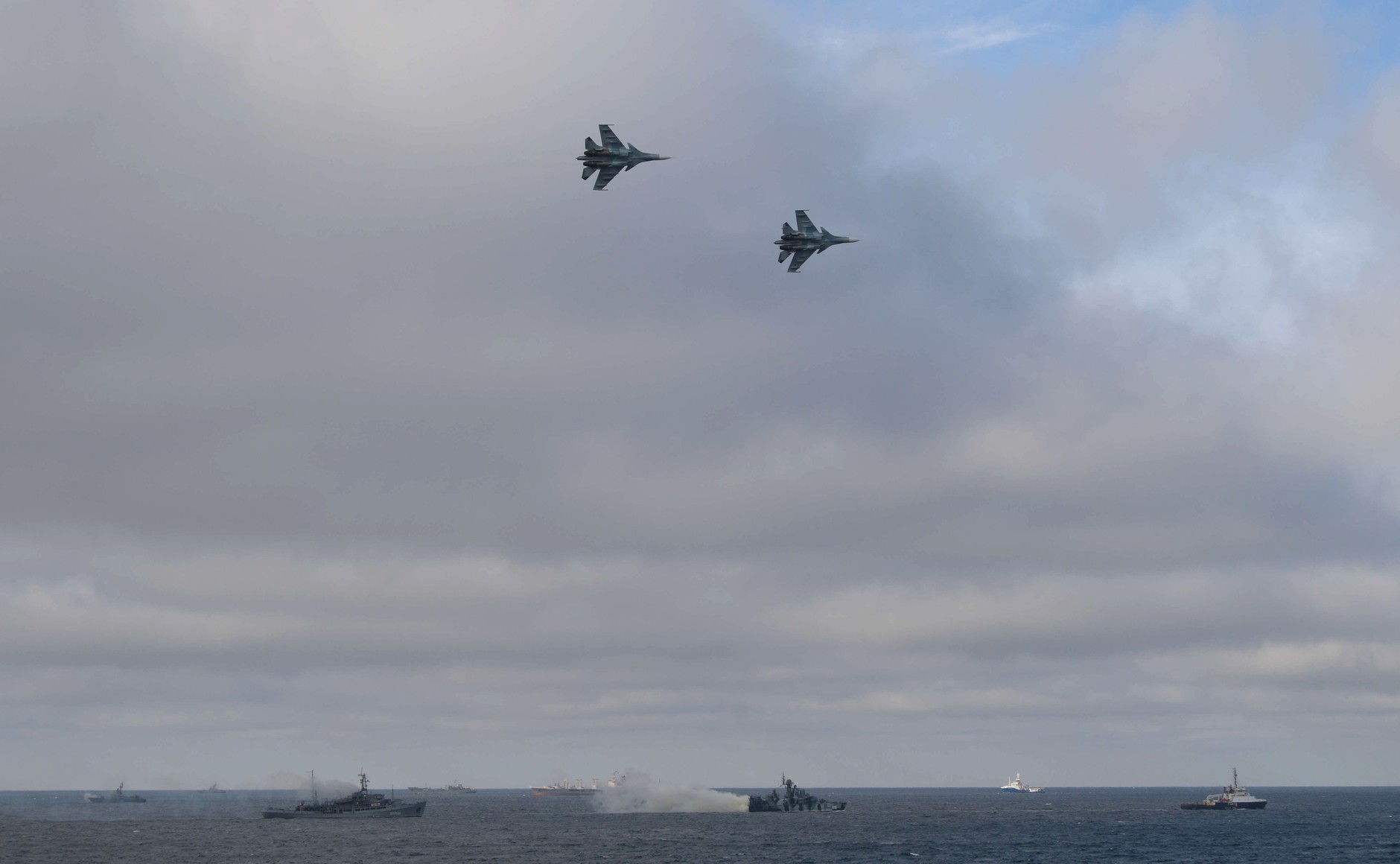Primarily, the efforts included fortifying the security and defense capabilities of local water-supply infrastructure objects (such as the North Crimean Canal). In addition, the authorities implemented multiple counter-sabotage and counter-terrorism measures (Ukrinform.ua, June 5). At the same time, some of this new military equipment and additional personnel were spotted on the territory of the Henicheskyi district, along the Sea of Azov (Vizit.ks.ua, June 5).
Kherson Oblast is strategically important for both Ukraine and Russia. For Ukraine, Kherson could become a center of transcontinental trade and a new “water gateway of Ukraine” (see EDM May 13). For Russia, Kherson is the key to the Sea of Azov and the Ukrainian part of the Black Sea, which could be used to diminish Kyiv’s military and economic regional presence (see EDM January 30, 2019 and February 12, 2019). The Crimean factor must also not be downplayed. Before 2015, Crimea depended on Kherson more than on Russia for water and electricity. The only land route connecting the peninsula with the continent is also via the Kherson region (Gazeta.ru, November 22, 2015 and April 30, 2017). Furthermore, Kherson would be integral to the creation of a land corridor to the (Russian-occupied) Moldovan separatist region of Transnistria and Ukraine’s strategically important but vulnerable Odesa Oblast.
The Russian World Foundation, established in 2007, has become the main sponsor of Russian information warfare abroad. Huge financial flows were allocated by the fund to finance various cultural projects outside of Russia. This was ostensibly to promote Russian language and literature; but in reality, the foundation became an outlet for Russian propaganda and disinformation. Until 2014, the then–Ukrainian minister of education, Dmytro Tabachnyk, supported the opening of Russian World classrooms in schools, libraries and universities. About 20 such centers were opened in southeastern Ukraine (Argumentua.com, October 26, 2019). On May 17, 2012, the Russian World Center was opened under the umbrella of Kherson State University. The ceremony was attended by the mayor of Kherson city at the time, Volodymyr Saldo, as well as the rector of the university, representatives of the Russian Orthodox Church, executive committee members of the Kherson City Council, representatives of the Kherson Regional State Administration, and the Consulate General of the Russian Federation in Odesa (Russkiymir.ru, May 21, 2012). Before 2013, apart from cultural events, the Center was actively promoting the Eurasian Customs Union (the precursor of the also-Moscow-led Eurasian Economic Union) and the idea that Crimea was a part of Russia. During the EuroMaidan revolution, the Russian World Center continued its activities in Kherson, until its work was finally “suspended” on August 12, 2014 (Investigator.org.ua, October 17, 2019). Nonetheless, according to the information posted on the Russian World Foundation webpage, at least five similar centers are still presently situated in Kherson Oblast (Russkiymir.ru, accessed June 25).
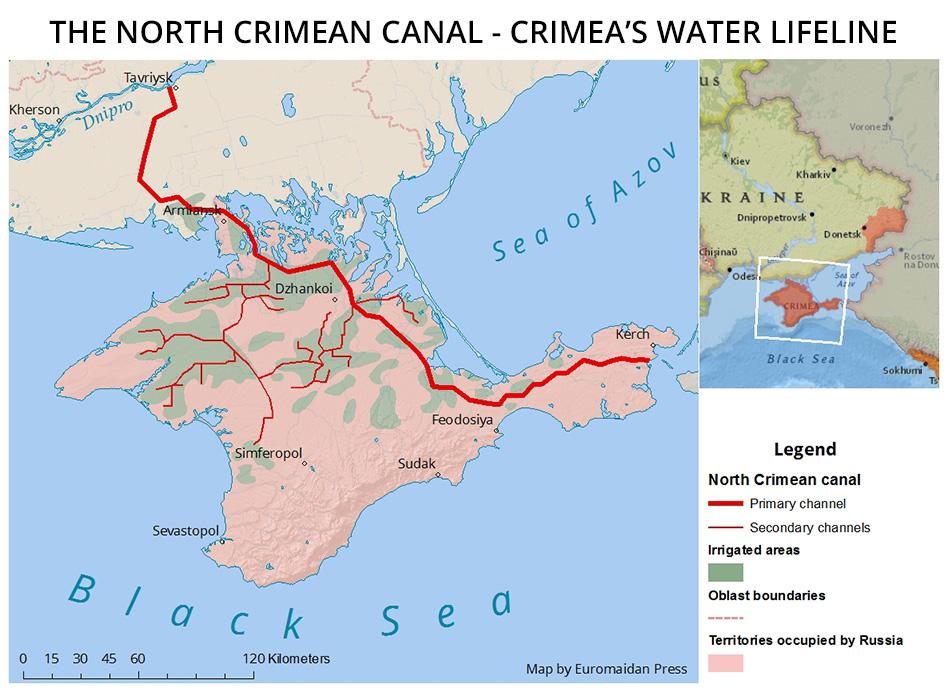 Other propagators of pro-Russian ideas in Kherson include the following groups: the Center of Russian Culture (NGO), the Kherson regional department of the All-Ukrainian Society of Russian Culture “Rus,” the Kherson regional public organization “Russian Cultural Center,” the Russian National Community “Rusich” (NGO), the Potemkin Charitable Foundation, the NGO “Prince Potemkin,” and others. Many of these organizations are focused on public and youth education, thus spreading pro-Russian/anti-Ukrainian sentiments among the most ideologically vulnerable layers of Ukrainian society. Incidentally, many of these NGOs are specifically developing a cult of Grigory Potemkin, positioning the 18th-century figure as a “father of Novorossiya.” In September 2014, the Center of Russian Culture held dozens of ceremonial events in Kherson to honor the memory of the Russian military leader and favorite of Catherine II, disseminating booklets, leaflets, and books on the subject, printed by the Russian World Foundation. In 2015, a book titled I Live in Russia was widely distributed among students attending Kherson elementary schools (Kuresh.info, October 21, 2019). At the same time, local teachers and medical workers—through fraudulent schemes backed by former Kherson city mayor Saldo as well as the pro-Russian Opposition Bloc party—were made to sponsor various anti-Ukrainian organizations (Most.ks.ua, October 23, 2017).
Other propagators of pro-Russian ideas in Kherson include the following groups: the Center of Russian Culture (NGO), the Kherson regional department of the All-Ukrainian Society of Russian Culture “Rus,” the Kherson regional public organization “Russian Cultural Center,” the Russian National Community “Rusich” (NGO), the Potemkin Charitable Foundation, the NGO “Prince Potemkin,” and others. Many of these organizations are focused on public and youth education, thus spreading pro-Russian/anti-Ukrainian sentiments among the most ideologically vulnerable layers of Ukrainian society. Incidentally, many of these NGOs are specifically developing a cult of Grigory Potemkin, positioning the 18th-century figure as a “father of Novorossiya.” In September 2014, the Center of Russian Culture held dozens of ceremonial events in Kherson to honor the memory of the Russian military leader and favorite of Catherine II, disseminating booklets, leaflets, and books on the subject, printed by the Russian World Foundation. In 2015, a book titled I Live in Russia was widely distributed among students attending Kherson elementary schools (Kuresh.info, October 21, 2019). At the same time, local teachers and medical workers—through fraudulent schemes backed by former Kherson city mayor Saldo as well as the pro-Russian Opposition Bloc party—were made to sponsor various anti-Ukrainian organizations (Most.ks.ua, October 23, 2017).
Pro-Russian activists, journalists, and YouTube personalities have also been involved in spreading anti-Ukrainian propaganda in Kherson. For example, the journalist Serhiy Osolodkin has spread conspiracy theories related to COVID-19 in Ukraine. Namely, his pieces published on the website Khersonci.com.ua, which is linked to the Opposition Bloc, have alleged that the current Ukrainian government (referred to as the “American pocket government”) was purposefully helping the coronavirus spread (Khersonci.com.ua, March 25, April 4). Similar ideas are repeated by YouTuber Kyrylo Stremousov (108,000 subscribers), who regularly discusses the topic of “US biological laboratories” in Ukraine (including ones “located” in Kherson), which he blames for spreading viruses in Ukraine. Another of his favorite topics is alleged reports of a “new wave of fascism in Ukraine” (YouTube, May 5). The latter narrative is regularly echoed by the separatist website Novoross.info, which also seeks to frighten Kherson residents with stories of purported Ukrainian Nazis. Moreover, the site seeks to discredit the Ukrainian authorities, army and politicians in an attempt to provoke Kherson residents to fight against them (Novoross.info, June 5).
Read also:
- Crimea’s growing water problem might provoke new Russian attack against Ukraine
- Moscow’s objective – gain land corridor to Crimea by seizing Mariupol, Ukrainian analyst says
- What caused the environmental disaster in occupied Crimea? A chemist explains
- Russian attack helicopter violates Ukrainian airspace first time since 2014 (2017)
- The War comes to Kherson (2016)
- Is Putin preparing to expand the war to Kherson? (2015)
- Russian Helicopters Attempted to Cross Border Between Crimea and Kherson Oblast (2014)

